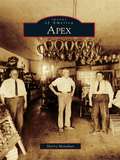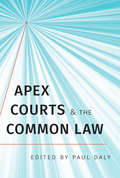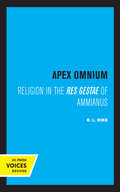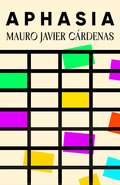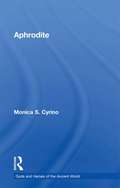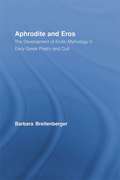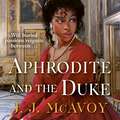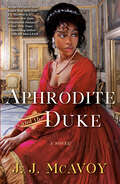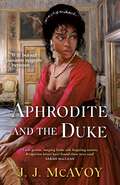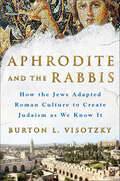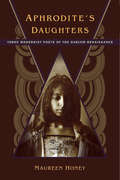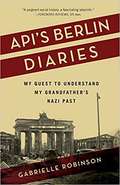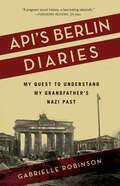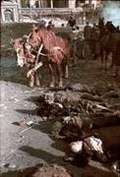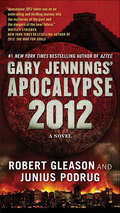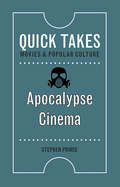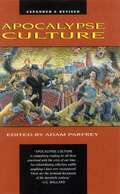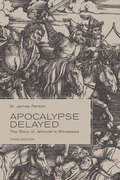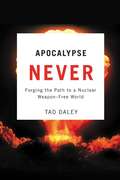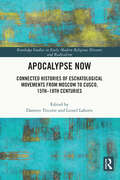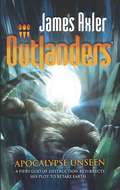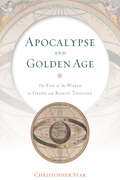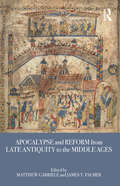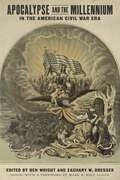- Table View
- List View
Apex
by Sherry MonahanThis quaint, picturesque community has an interesting history. For years it was a rural hamlet with a nearby pond, simply called Log Pond. It later became Apex, and the pond was eventually drained in the name of progress. Apex appeared on the map because of the coalfields in Chatham/Lee County. The coal companies needed to get their coal to Raleigh, and around 1870, the Chatham Railroad was chugging along, right by Log Pond. It officially became Apex with the establishment of a post office. Apex put the railroad to use immediately and shipped lumber, tar, turpentine, and pitch. Early on, Apex passed a few ordinances that some might find in the Wild West, including those dealing with whiskey, gambling, and prostitution. The town suffered two fires in the early 1900s, but its residents persevered, and Apex's small-town charm is still enjoyed today.
Apex Courts and the Common Law
by Paul DalyFor centuries, courts across the common law world have developed systems of law by building bodies of judicial decisions. In deciding individual cases, common law courts settle litigation and move the law in new directions. By virtue of their place at the top of the judicial hierarchy, courts at the apex of common law systems are unique in that their decisions and, in particular, the language used in those decisions, resonate through the legal system. Although both the common law and apex courts have been studied extensively, scholars have paid less attention to the relationship between the two. By analyzing apex courts and the common law from multiple angles, this book offers an entry point for scholars in disciplines related to law – such as political science, history, and sociology – who are seeking a deeper understanding and new insights as to how the common law applies to and is relevant within their own disciplines.
Apex Omnium: Religion in the Res Gestae of Ammianus (Transformation of the Classical Heritage #15)
by R. L. RikeOne of the masterpieces of Greco-Roman literature is the history written by Ammianus Marcellinus near the end of the fourth century A.D. His work bears unique witness to an empire struggling at once toward traditional and transformation, the old Rome of Augustus and the new Rome of Christ. Embodied within Ammianus's history is a universally admired spirit of independence that has, however, led to a steady denaturing of the historian's personal commitment to particular causes. At the hands of modern critics, Ammianus frequently seems to lose his character, and his frequently seems to lose his character, and his religion too vanishes. Rike reconstructs Ammianus's religion from the beginning and concludes that he was an enthusiastic pagan whose firm commitment to traditional beliefs cannot be understood without changing our usual conceptions of late Roman religion. Rike's study widens our too narrowly philosophical sense of paganism; the historian's striving will remind us of the vital spiritual continuum which joined the ages of Augustus and Constantine. Accordingly, this book should itself serve as a useful bridge between students of Late Antiquity and traditional classicists. This title is part of UC Press's Voices Revived program, which commemorates University of California Press's mission to seek out and cultivate the brightest minds and give them voice, reach, and impact. Drawing on a backlist dating to 1893, Voices Revived makes high-quality, peer-reviewed scholarship accessible once again using print-on-demand technology. This title was originally published in 1987.
Aphasia
by Mauro Javier CárdenasA modernist tour de force from an exhilarating new talent Antonio&’s sister is on the run. Convinced that Antonio is conspiring with Obama, the Pentagon, and now her own neighbours, she&’s disappeared. Antonio, however, is doing his best to think of anything but his sister or, for that matter, any of his problems. By day, he&’s Antonio, father of two, recent divorcé and unenthusiastic database analyst. In private, he divides his time between visits to seedy pick-up website &‘Your Sugar Arrangements&’, and hours spent combing fiction and film for examples of how to become a better father. As the meticulously crafted structure of his outwardly comfortable life begins to crumble, Antonio submerges himself in the lives of those who have shaped him. What really caused his mother to leave Antonio&’s father with two young children in tow? What lies beneath his Czech ex-wife&’s troubled, obsessive relationship with her country? And where does Antonio, the man, fit in all this? Propulsive and freewheeling, Mauro Javier Cárdenas&’ second novel is a daring examination of identity in a world that seems determined to fragment us.
Aphrodite (Gods And Heroes Of The Ancient World Ser.)
by Monica S. CyrinoAphrodite explores the many myths and meanings of the Greek goddess of love, sex and beauty. One of the most widely worshipped and popular deities in Greek antiquity, Aphrodite emerges from the imaginations of the ancient Greek writers and artists as a multifaceted, powerful and charismatic figure. This volume explores the importance of Aphrodite for the ancient Greeks, as well as her enduring influence as a symbol of beauty, adornment, love and sexuality in contemporary culture. In a wide-ranging investigation of the universality of Aphrodite’s power and significance, this volume illuminates the numerous intricate levels of divinity embodied by the alluring figure of Aphrodite. Aphrodite offers new insights into the ancient texts and artistic representations of the goddess, as well as a comprehensive survey of the current scholarship about the origins and interpretations of Aphrodite, whilst also highlighting her eternal popular appeal across cultures and generations. A goddess of love who is not afraid to enter the battlefield; a goddess of bodily adornment who is the first to appear totally nude; a goddess born of the sea who emerges into the open sky: Aphrodite is a polyvalent deity, plural in nature, function and significance.
Aphrodite and Eros: The Development of Greek Erotic Mythology (Studies In Classics Ser. #4)
by Barbara BreitenbergerThis book offers a groundbreaking revision of the popular image of Aphrodite and Eros that lives on in Roman poetry (Venus and Cupid) and has inspired artists for centuries. An interdisciplinary analysis of the Archaic period - using literary, iconographical, and cultic evidence - shows the distinct concept behind the two deities of love. Aphrodite's character, sphere of influence, and function feature in her traditional myths and are well reflected in cult. Eros, however, was not yet a similarly personified mythical figure at that stage, nor did he have an individual cult.Breitenberger follows the different stages of the development of Eros's personality. Originally a cosmic entity and an unpersonified aspect of Aphrodite, he was given his mythical identity by successive archaic lyric poets who were particularly keen to mythologize a male counterpart to the established love-goddess Aphrodite. This male love-god turns out to be the divinized homoerotic ideal of the male aristocracy 'worshipped' at their symposia. The development of the male love-god is taken as an example to demonstrate that poets' artistic innovation as well as their social and historical background played an important role in creating Greek mythology.
Aphrodite and the Duke (Aphrodite and the Duke)
by J.J. McAvoyAphrodite wishes to escape the marriage mart but will a second chance with the elusive Duke of Everely change her mind?Aphrodite Du Bell is a diamond of the first water and a favourite of the queen. But her renowned loveliness didn't stop the love of her life, Evander Eagleman, from jilting her and marrying another woman four years ago.Aphrodite has been in self-imposed exile ever since. However, when her formidable mother summons her back to London Aphrodite has no choice but to acquiesce.Upon her return, Aphrodite learns that the newly widowed Evander is in town and, despite her best efforts, the grand society events of the season repeatedly push them together. With each encounter, Aphrodite's traitorous feelings make it perfectly clear that the Duke still holds court over her heart.Can the couple make strides to mend past hurts, or will the true reason Evander pushed Aphrodite aside threaten their coveted future and even their lives . . . ?'Full of lush gowns, longing looks and lingering secrets, Bridgerton lovers have found their next read in Aphrodite and the Duke. J. J. McAvoy is a welcome new voice in historical romance' SARAH MACLEAN, New York Times bestselling author of A DUKE WORTH FALLING FOR'Fantastically pacy with a lovely heroine and a great Austenian villain. Perfect for all Bridgerton fans' PHOEBE WYNNE, author of THE RUINS(P) 2022 Penguin Audio
Aphrodite and the Duke: A Novel (The DuBells #1)
by J.J. McAvoy&“Bridgerton lovers have found their next read. J. J. McAvoy is a welcome new voice in historical romance.&”—New York Times bestselling author Sarah MacLean Second chances are even sweeter. . . .Aphrodite Du Bell has always resented her name. While the members of the ton, and even the queen herself, praise her warm brown skin, perfect curls, and exquisite features, Aphrodite can&’t help but think that living up to the literal goddess of beauty is asking a bit much. Her renowned loveliness certainly didn&’t stop the love of her life from jilting her and marrying another woman four years ago.When Aphrodite&’s formidable mother summons her back to London to aid in her sister&’s debut, she has no choice but to acquiesce. But Aphrodite is determined to ignore one man in particular: Evander Eagleman, the Duke of Everely, the man who devastated her all those years ago. Yet why does her guileless heart still flutter at the sight of him?Evander Eagleman lost his chance for true love, but now that he is an unattached widower, he is determined to win back Aphrodite&’s trust—and her hand in marriage. But just as the couple make strides to mend old wounds, Evander&’s true reason for rejecting Aphrodite threatens their coveted future . . . and even their lives.
Aphrodite and the Duke: The perfect Regency romance that will steal your heart (Aphrodite and the Duke)
by J.J. McAvoy'Full of lush gowns, longing looks and lingering secrets, Bridgerton lovers have found their next read in Aphrodite and the Duke. JJ McAvoy is a welcome new voice in historical romance' SARAH MACLEAN, New York Times bestselling author of A DUKE WORTH FALLING FORAphrodite wishes to escape the marriage mart but will a second chance with the elusive Duke of Everely change her mind?Aphrodite Du Bell is a diamond of the first water and a favourite of the queen. But her renowned loveliness didn't stop the love of her life, Evander Eagleman, from jilting her and marrying another woman four years ago.Aphrodite has been in self-imposed exile ever since. However, when her formidable mother summons her back to London Aphrodite has no choice but to acquiesce.Upon her return, Aphrodite learns that the newly widowed Evander is in town and, despite her best efforts, the grand society events of the season repeatedly push them together. With each encounter, Aphrodite's traitorous feelings make it perfectly clear that the Duke still holds court over her heart.Can the couple make strides to mend past hurts, or will the true reason Evander pushed Aphrodite aside threaten their coveted future and even their lives . . . ?'Fantastically pacy with a lovely heroine and a great Austenian villain. Perfect for all Bridgerton fans' PHOEBE WYNNE, author of THE RUINS
Aphrodite and the Rabbis: How the Jews Adapted Roman Culture to Create Judaism as We Know It
by Burton L. VisotzkyHard to believe but true:- The Passover Seder is a Greco-Roman symposium banquet- The Talmud rabbis presented themselves as Stoic philosophers- Synagogue buildings were Roman basilicas- Hellenistic rhetoric professors educated sons of well-to-do Jews- Zeus-Helios is depicted in synagogue mosaics across ancient Israel- The Jewish courts were named after the Roman political institution, the Sanhedrin- In Israel there were synagogues where the prayers were recited in Greek.Historians have long debated the (re)birth of Judaism in the wake of the destruction of Jerusalem and the Temple cult by the Romans in 70 CE. What replaced that sacrificial cult was at once something new–indebted to the very culture of the Roman overlords–even as it also sought to preserve what little it could of the old Israelite religion. The Greco-Roman culture in which rabbinic Judaism grew in the first five centuries of the Common Era nurtured the development of Judaism as we still know and celebrate it today. Arguing that its transformation from a Jerusalem-centered cult to a world religion was made possible by the Roman Empire, Rabbi Burton Visotzky presents Judaism as a distinctly Roman religion. Full of fascinating detail from the daily life and culture of Jewish communities across the Hellenistic world, Aphrodite and the Rabbis will appeal to anyone interested in the development of Judaism, religion, history, art and architecture.
Aphrodite's Daughters: Three Modernist Poets of the Harlem Renaissance
by Maureen HoneyThe Harlem Renaissance was a watershed moment for racial uplift, poetic innovation, sexual liberation, and female empowerment. Aphrodite's Daughters introduces us to three amazing women who were at the forefront of all these developments, poetic iconoclasts who pioneered new and candidly erotic forms of female self-expression. Maureen Honey paints a vivid portrait of three African American women--Angelina Weld Grimké, Gwendolyn B. Bennett, and Mae V. Cowdery--who came from very different backgrounds but converged in late 1920s Harlem to leave a major mark on the literary landscape. She examines the varied ways these poets articulated female sexual desire, ranging from Grimké's invocation of a Sapphic goddess figure to Cowdery's frank depiction of bisexual erotics to Bennett's risky exploration of the borders between sexual pleasure and pain. Yet Honey also considers how they were united in their commitment to the female body as a primary source of meaning, strength, and transcendence. The product of extensive archival research, Aphrodite's Daughters draws from Grimké, Bennett, and Cowdery's published and unpublished poetry, along with rare periodicals and biographical materials, to immerse us in the lives of these remarkable women and the world in which they lived. It thus not only shows us how their artistic contributions and cultural interventions were vital to their own era, but also demonstrates how the poetic heart of their work keeps on beating.
Api's Berlin Diaries: My Quest to Understand My Grandfather's Nazi Past
by Gabrielle RobinsonMoving and provocative, Api’s Berlin Diaries offers a personal perspective on the fall of Berlin 1945 and the far-reaching aftershocks of the Third Reich. <P><P> After her mother’s death, Robinson found her grandfather’s diaries and discovered that he had been a member of the Nazi party. Her memoir juxtaposes her grandfather’s harrowing account serving as doctor in the ruins of Berlin with her memories of his loving protection after the war, and raises disturbing questions about the political responsibility we all carry as individuals.
Api's Berlin Diaries: My Quest to Understand My Grandfather's Nazi Past
by Gabrielle RobinsonA haunting personal story of Berlin at the end of the Third Reich—and an unflinching investigation into a family’s Nazi pastWhen Gabrielle Robinson found her grandfather’s Berlin diaries, hidden behind books in her mother’s Vienna apartment, she made a shocking discovery—her beloved Api had been a Nazi.The entries record his daily struggle to survive in a Berlin that was 90% destroyed. Near collapse himself Api, a doctor, tried to help the wounded and dying in nightmarish medical cellars without cots, water or light. The dead were stacked in the rubble outside.Searching to understand why her grandfather had joined the Nazi party, Robinson retraces his steps in the Berlin of the 21st century. She reflects on German guilt, political responsibility, and facing the past. But she also remembers Api, who had given her a loving home in those cold and hungry post-war years.“This a must read for anyone interested in the German experience during WWII”—Ariana Neumann, author of When Time StoppedScroll up and click “buy now” to read Api’s Berlin Diaries today
Apocalypse 1945: the Destruction of Dresden
by David IrvingDescribes the bombing of Dresden by the allies in 1945. The bombing started a firestorm which destroyed the city.
Apocalypse 2012: A Novel (Aztec)
by Gary Jennings Junius Podrug Robert GleasonIn ancient Mexico, the "End-Time Codex"--prophesizing the world's end in 2012--is entombed. A young Aztec-Mayan slave tells us its story. Gifted in math and astronomy, Coyotl rises to king's counselor in Tula, a golden city of milk and honey ruled by the brilliant god-king, Quetzalcoatl, the Feathered Serpent of lore. Gathering artists, scientists and craftsmen, this legendary ruler builds a city that will awe humanity for one thousand years. But he also faces war, catastrophic drought, betrayal and the rise of an evil death-cult religion. Instituting the infamous "Blood Covenant," its priests drag thousands of people a year atop temple-pyramids and rip their hearts beating from their chests. To stop them Quetzalcoatl must defy the flames of bloody civil war.A thousand years later scientists discover the End-Time Codex. While struggling to decipher it, they realize their own age mirrors Tula's. Can they crack the 2012 code and save their world from Tula's deadly fate?At the Publisher's request, this title is being sold without Digital Rights Management Software (DRM) applied.
Apocalypse Cinema (Quick Takes: Movies and Popular Culture)
by Stephen PrinceVivid images of the apocalypse proliferate throughout contemporary cinema, which pictures the death of civilization in wildly different ways. Some films imagine a future where humanity is wiped out entirely, while others envision humans as an endangered species, enslaved by alien invaders or hunted by zombie hordes. This book provides a lively overview of apocalypse cinema, including alien invasions, nuclear annihilation, asteroid collisions, climate change, and terrifying plagues. Covering pivotal films from the silent era to the present day, including Metropolis, Invasion of the Body Snatchers, Dr. Strangelove, Contagion, and Avengers: Endgame, Stephen Prince explores how these dark visions are rooted in religious and prophetic traditions, and he considers how our love for apocalypse cinema is tied to fundamental existential questions and anxieties that never go out of fashion.
Apocalypse Culture
by Adam Parfrey"Parfrey has edited a new book of Revelation, a collection which is almost as awesome and terrifying as the original biblical text."--Edwin Pouncey, NME"Apocalypse Culture is compulsory reading for all those concerned with the crisis of our times. An extraordinary collection unlike anything I have ever encountered. These are the terminal documents of the twentieth century."--J.G. Ballard
Apocalypse Delayed
by M. James PentonSince 1876, Jehovah's Witnesses have believed that they are living in the last days of the present world. Charles T. Russell, their founder, advised his followers that members of Christ's church would be raptured in 1878, and by 1914 Christ would destroy the nations and establish his kingdom on earth. The first prophecy was not fulfilled, but the outbreak of the First World War lent some credibility to the second. Ever since that time, Jehovah's Witnesses have been predicting that the world would end "shortly." Their numbers have grown to many millions in over two hundred countries. They distribute a billion pieces of literature annually, and continue to anticipate the end of the world.For almost thirty years, M. James Penton's Apocalypse Delayed has been the definitive scholarly study of this religious movement. As a former member of the sect, Penton offers a comprehensive overview of the Jehovah's Witnesses. His book is divided into three parts, each presenting the Witnesses' story in a different context: historical, doctrinal, and sociological. Some of the issues he discusses are known to the general public, such as the sect's opposition to military service and blood transfusions. Others involve internal controversies, including political control of the organization and the handling of dissent within the ranks.Thoroughly revised, the third edition of Penton's classic text includes substantial new information on the sources of Russell's theology and on the church's early leaders, as well as coverage of important developments within the sect since the second edition was published fifteen years ago.
Apocalypse Never: Forging the Path to a Nuclear Weapon-Free World
by Tad DaleyApocalypse Never maintains that the abolition of nuclear weapons is both essential and achievable, and reveals in fine detail what we need to do--both governments and movements--to make it a reality. Tad Daley insists that while global climate change poses the single greatest long-term peril to the human race, the nuclear challenge in its many incarnations--nuclear terror, nuclear accident, a nuclear crisis spinning out of control--poses the single most immediate peril. Daley has written a book for the general reader about this most crucial of contemporary challenges.
Apocalypse Now: Connected Histories of Eschatological Movements from Moscow to Cusco, 15th-18th Centuries (Routledge Studies in Early Modern Religious Dissents and Radicalism)
by Lionel Laborie Damien TricoireEschatology played a central role in both politics and society throughout the early modern period. It inspired people to strive for social and political change, including sometimes by violent means, and prompted in return strong reactions against their religious activism. From the fifteenth to the eighteenth century, numerous apocalyptical and messianic movements came to the fore across Eurasia and North Africa, raising questions about possible interconnections. Why were eschatological movements so pervasive in early modern times? This volume provides some answers to this question by exploring the interconnected histories of confessions and religions from Moscow to Cusco. It offers a broad picture of Christian and, to a lesser extent, Jewish and Islamic eschatological movements from the fifteenth to the eighteenth century, thereby bridging important and long-standing gaps in the historiography. Apocalypse Now will appeal to both researchers and students of the history of early modern religion and politics in the Christian, Jewish and Islamic worlds. By exploring connections between numerous eschatological movements, it gives a fresh insight into one of the most promising fields of European and global history.
Apocalypse Then: American Intellectuals and the Vietnam War, 1954-1975
by Robert R. TomesPrior to the Vietnam war, American intellectual life rested comfortably on shared assumptions and often common ideals. Intellectuals largely supported the social and economic reforms of the 1930s, the war against Hitler's Germany, and U.S. conduct during the Cold War. By the early 1960s, a liberal intellectual consensus existed. The war in Southeast Asia shattered this fragile coalition, which promptly dissolved into numerous camps, each of which questioned American institutions, values, and ideals. Robert R. Tomes sheds new light on the demise of Cold War liberalism and the development of the New Left, and the steady growth of a conservatism that used Vietnam, and anti-war sentiment, as a rallying point. Importantly, Tomes provides new evidence that neoconservatism retreated from internationalism due largely to Vietnam, only to regroup later with substantially diminished goals and expectations. Covering vast archival terrain, Apocalypse Then stands as the definitive account of the impact of the Vietnam war on American intellectual life.
Apocalypse Unseen
by James AxlerFar in the future, mankind endures the relentless onslaught of alien oppressors, an ancient battle whose tide has begun to turn through the efforts of the Cerberus rebels. This remarkable band of warriors fights an elusive enemy, traveling through dangerous portals of time and space, where reality and un-reality collide in stunning, deadly purpose…
Apocalypse and Golden Age: The End of the World in Greek and Roman Thought
by Christopher StarHow did the ancient Greeks and Romans envision the end of the world?What is the long-term future of the human race? Will the world always remain as it is or will it undergo a catastrophic change? What role do the gods, human morality, and the forces of nature play in bringing about the end of the world? In Apocalypse and Golden Age, Christopher Star reveals the answers that Greek and Roman authors gave to these questions. The first large-scale investigation of the various scenarios for the end of the world in classical texts, this book demonstrates that key thinkers often viewed their world as shaped by catastrophe. Star focuses on how this theme was explored over the centuries in the works of poets, such as Hesiod, Vergil, Ovid, and Lucan, and by philosophers, including the Presocratics, Plato, Epicurus, Lucretius, Cicero, and Seneca. With possibilities ranging from periodic terrestrial catastrophes to the total dissolution of the world, these scenarios address the ultimate limits that define human life and institutions, and place humanity in the long perspective of cosmic and natural history. These texts also explore various options for the rebirth of society after world catastrophe, such as a return of the Golden Age or the redevelopment of culture and political institutions. Greek and Roman visions of the end, Star argues, are not calls to renounce this world and prepare for a future kingdom. Rather, they are set within larger investigations that examine and seek to improve personal and political life in the present. Contextualizing classical thought about the apocalypse with biblical studies, Star shows that the seeds of our contemporary anxieties about globalization, politics, and technology were sown during the Roman period. Even the prevalent link between an earthly leader and the beginning of the end times can be traced back to Greek and Roman rulers, the emperor Nero in particular. Apocalypse and Golden Age enriches our understanding of apocalyptic thought.
Apocalypse and Reform from Late Antiquity to the Middle Ages
by James T. Palmer Matthew GabrieleApocalypse and Reform from Late Antiquity to the Middle Ages provides a range of perspectives on what reformist apocalypticism meant for the formation of Medieval Europe, from the Fall of Rome to the twelfth century. It explores and challenges accepted narratives about both the development of apocalyptic thought and the way it intersected with cultures of reform to influence major transformations in the medieval world. Bringing together a wealth of knowledge from academics in Britain, Europe and the USA this book offers the latest scholarship in apocalypse studies. It consolidates a paradigm shift, away from seeing apocalypse as a radical force for a suppressed minority, and towards a fuller understanding of apocalypse as a mainstream cultural force in history. Together, the chapters and case studies capture and contextualise the variety of ideas present across Europe in the Middle Ages and set out points for further comparative study of apocalypse across time and space. Offering new perspectives on what ideas of ‘reform’ and ‘apocalypse’ meant in Medieval Europe, Apocalypse and Reform from Late Antiquity to the Middle Ages provides students with the ideal introduction to the study of apocalypse during this period.
Apocalypse and the Millennium in the American Civil War Era: Radical Movements in the Southwest, 1895--1943 (Conflicting Worlds: New Dimensions of the American Civil War)
by Mark A. Noll Jennifer Graber Ryan Cordell Edward J. Blum Robert Nelson Nina Reid-Maroney Jason Phillips Zachary W. Dresser Charles Irons Joseph Moore Matthew Harper Ben Wright Scott NesbitIn the Civil War era, Americans nearly unanimously accepted that humans battled in a cosmic contest between good and evil and that God was directing history toward its end. The concept of God's Providence and of millennialism -- Christian anticipations of the end of the world -- dominated religious thought in the nineteenth century. During the tumultuous years immediately prior to, during, and after the war, these ideas took on a greater importance as Americans struggled with the unprecedented destruction and promise of the period. Scholars of religion, literary critics, and especially historians have acknowledged the presence of apocalyptic thought in the era, but until now, few studies have taken the topic as their central focus or examined it from the antebellum period through Reconstruction. By doing so, the essays in Apocalypse and the Millennium in the American Civil War Era highlight the diverse ways in which beliefs about the end times influenced nineteenth-century American lives, including reform culture, the search for meaning amid the trials of war, and the social transformation wrought by emancipation. Millennial zeal infused the labor of reformers and explained their successes and failures as progress toward an imminent Kingdom of God. Men and women in the North and South looked to Providence to explain the causes and consequences of both victory and defeat, and Americans, black and white, experienced the shock waves of emancipation as either a long-prophesied jubilee or a vengeful punishment. Religion fostered division as well as union, the essays suggest, but while the nation tore itself apart and tentatively stitched itself back together, Americans continued looking to divine intervention to make meaning of the national apocalypse. Contributors:Edward J. BlumRyan CordellZachary W. DresserJennifer GraberMatthew HarperCharles F. IronsJoseph MooreRobert K. NelsonScott Nesbit Jason PhillipsNina Reid-MaroneyBen Wright
